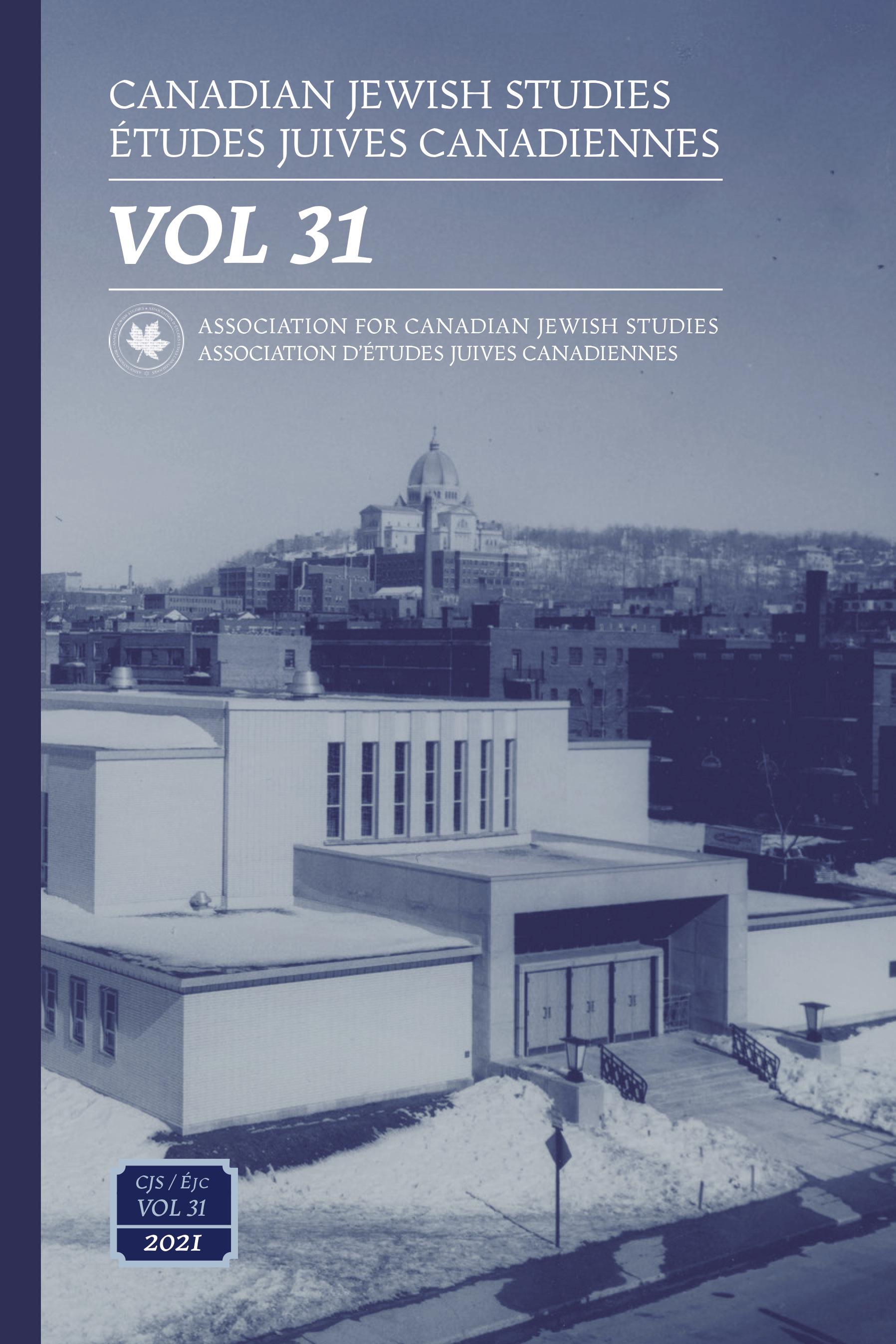Snowbirds Spotted in Cuba: Canadian Jewish Congress on The Global Stage in the 1960s
DOI :
https://doi.org/10.25071/1916-0925.40208Mots-clés :
Canadian Jewish Congress , Political Issues and Activities , United States and American JewryRésumé
The American Jewish community has historically overshadowed Canadian Jewry. In population size, political prestige, and global influence, the power imbalance between American- and Canadian-Jewish organizations throughout the twentieth century has anchored popular understandings of North American Jewish affairs as one dominated by the U.S. Whereas the American Jewish Joint Distribution Committee (JDC) shepherded international Jewish causes throughout this period, its Canadian analogue, the Canadian Jewish Congress (CJC), never achieved such stature. However, on an island ninety miles from the U.S. coast, the fragile geopolitics of the Cold War conspired to recast this relationship. The Castro Revolution initiated a process which culminated in the severing of U.S.-Cuban ties in 1961, leaving a precarious Cuban Jewish community vulnerable. Canada’s geographic proximity and close institutional ties with American Jewry transformed the CJC’s role as the primary caregivers of Cuban Jewry. Consequently, the sundering of American-Cuban relations elevated the CJC to a position of strategic prominence on the international stage ultimately overshadowing its larger, and more illustrious, cousin to the south in Cuba.
La communauté juive américaine a historiquement éclipsé la communauté juive canadienne. En termes de population, de prestige politique et d’influence mondiale, le déséquilibre de pouvoir entre les organisations juives américaines et canadiennes tout au long du XXe siècle a ancré la compréhension populaire que les affaires juives nord-américaines étaient dominées par les États-Unis. Alors que le American Jewish Joint Distribution Committee (JDC) a dirigé des causes juives internationales tout au long de cette période, son analogue canadien, le Congrès juif canadien (CJC), n’a jamais atteint une telle stature. Cependant, sur une île située à quatre-vingt-dix milles des côtes américaines, la fragile géopolitique de la guerre froide a contribué à modifier cette relation. La révolution de Castro a lancé un processus qui a abouti à la rupture des liens américano-cubains en 1961, laissant une communauté juive cubaine précaire vulnérable. La proximité géographique du Canada et les liens institutionnels étroits avec la communauté juive américaine ont transformé le rôle du CJC en tant que principal allié de la communauté juive cubaine. Par conséquent, la rupture des relations américano-cubaines a élevé le CJC à une position d’importance stratégique sur la scène internationale, éclipsant finalement à Cuba son plus grand et plus illustre cousin du sud.
Téléchargements
Publié-e
Comment citer
Numéro
Rubrique
Licence
Canadian Jewish Studies/ Études juives canadiennes is a journal dedicated to the open exchange of information; therefore the author agrees that the work published in the journal be made available to the public under a Creative Commons Attribution-Noncommercial-No Derivative Works 4.0 Unported License. The publisher (Association for Canadian Jewish Studies / Association d'études juives canadiennes) recognizes the author's intellectual property rights; authors retain copyright over their work. The author grants the publisher first serial publication rights and the non-exclusive right to mount, preserve, and distribute the intellectual property. The journal is digitized and published on the open access website http://pi.library.yorku.ca/ojs/index.php/cjs/index.







